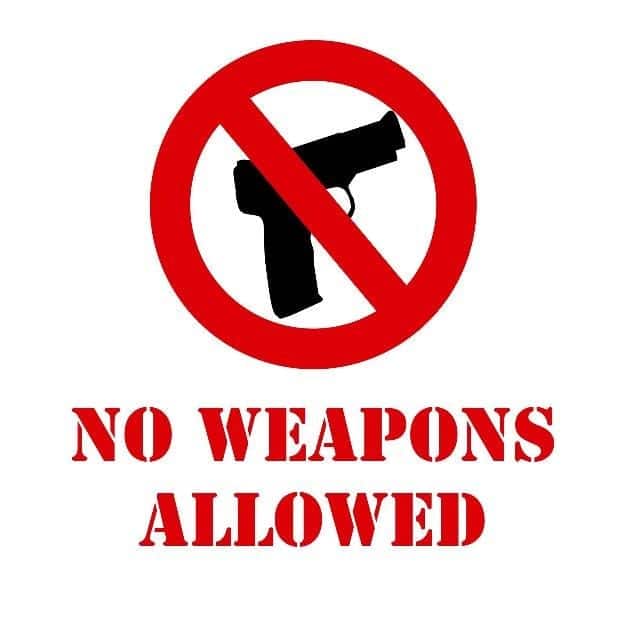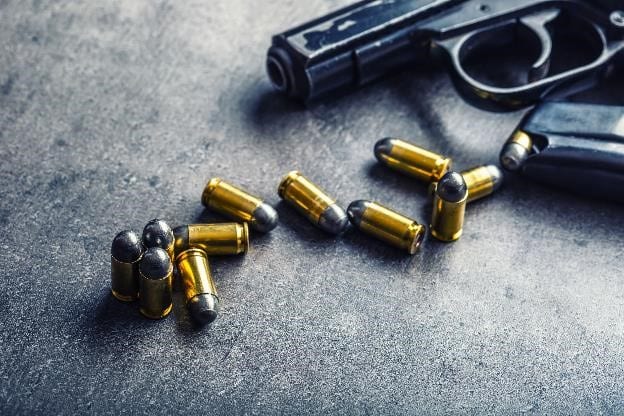
A domestic violence conviction can affect both your professional and personal life, but did you know it could also affect your gun rights?
United States Congresswoman Debbie Dingell of Michigan and Congressman Dan Donovan of New York recently introduced bipartisan legislation in the House – the Zero Tolerance for Domestic Abusers Act – “that protects survivors of dating violence and stalking by closing loopholes that allow abusers and stalkers access to guns.”
Senator Amy Klobuchar from our own state then introduced a companion bill in the Senate – the Protecting Domestic Violence and Stalking Victims Act of 2017.
So what do these bills specifically entail?
Both of the Acts would update current federal law “to address existing loopholes that make it easy for perpetrators of dating violence and those convicted of misdemeanor stalking to legally access guns.”
First, the bill would ensure that if someone were convicted of abusing a dating partner, he or she would be prohibited from purchasing or owning a firearm. As the federal law stands now, it only prohibits someone who has abused their spouse, someone they live with, or someone they have a child with from possessing firearms. The law does not include current or former dating partners. The new bill hopes to change that.
Second, the bill would also clarify the current law to ensure that convicted stalkers cannot have legal access to firearms.
Dingell first introduced her bill during Congress’ last session, but it never made it out of committee. With bipartisan agreement, however, the bill might have a better chance this time around.
So what does this mean for domestic violence here in Minnesota? Let’s look at the current laws, and if the new bills are passed, how they could affect domestic violence convictions.
Minnesota’s Domestic Violence Laws
Domestic violence is called domestic violence because it is committed against a “family or household member.” Our state’s laws define a family or household member to be:
- Spouses and former spouses;
- Parents and children;
- Persons related by blood;
- Persons who are presently residing together or who have resided together in the past;
- Persons who have a child in common regardless of whether they have been married or have lived together at any time;
- A man and woman if the woman is pregnant and the man is alleged to be the father, regardless of whether they have been married or have lived together at any time; and
- Persons involved in a significant romantic or sexual relationship.
As you can see, our state already includes dating partners within the definition of domestic violence.
Domestic Violence and Firearms in Minnesota
Now that we know what domestic violence is in our state, what happens if you have a gun and are then convicted of domestic violence?
If a firearm was used in any way during a domestic assault, the alleged offender will have to forfeit their firearm.
Taking that even further, if a firearm was used in any way, the court can prohibit the offender from possessing any type of firearm for any period longer than three years or for the remainder of the person’s life.
If someone is convicted of domestic violence and didn’t use a firearm during the assault but does own a firearm, the court will prohibit the offender from possessing a firearm for three years from the date of the conviction.

Both our state government and the federal government take domestic violence convictions seriously, and the consequences are only going to get more severe going forward. That’s why, if you’ve been charged with domestic violence, you should contact an experienced Minnesota domestic violence attorney so you can not only defend against your charges, but also your right to have a firearm.
About the Author:
Christopher Keyser is a Minneapolis-based criminal and DWI defense attorney known for fighting aggressively for his clients and utilizing innovative tactics to get the most positive results. He has been featured in numerous media outlets due to the breadth and depth of his knowledge, and recognized as a Minnesota Super Lawyers Rising Star (2014–2015), a Top 100 Trial Lawyer (2013–2015), and a Top 40 Under 40 Attorney (2013–2015).





